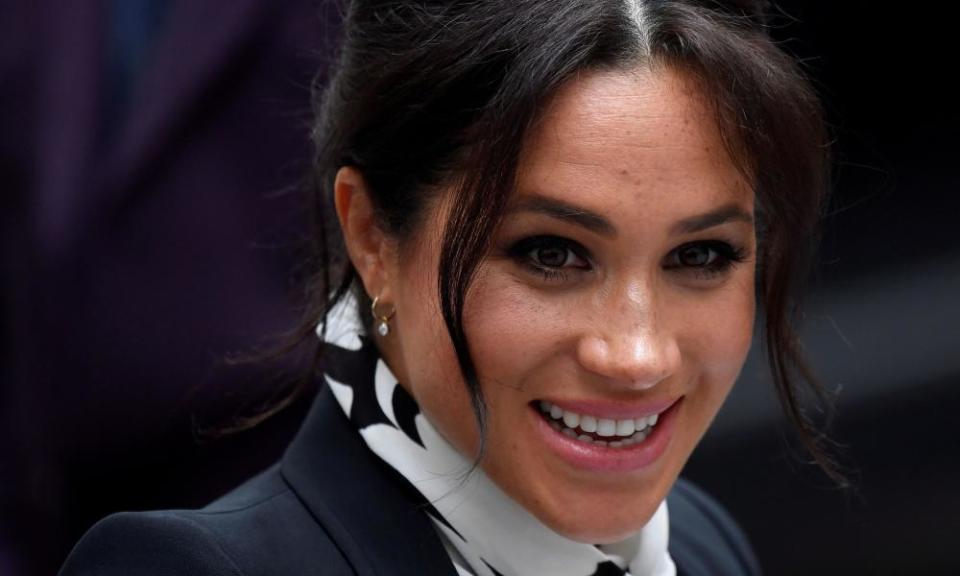How Meghan took personal risks in Mail on Sunday privacy victory

The privacy victory over the Mail on Sunday has seemingly exacted a toll on the Duchess of Sussex, who in vigorously pursuing the case went far further than any other present-day royal in taking on the tabloid culture.
The court of appeal stressed “no expense” was spared in fighting and defending the legal action over publication of extensive extracts of her private letter to her estranged father. As losers, Associated Newspapers Limited (ANL), publishers of the newspaper and Mail Online, will bear the brunt.
But Meghan paid a personal, emotional price after finding herself up against a formidable foe. Her statement, issued after Thursday’s ruling, spoke of being “scared”, of being “brave enough to reshape a tabloid industry”, of being centre stage in a “game with no rules”, of facing “deception, intimidation and calculated attacks”.
Related: Meghan calls for tabloid industry overhaul as Mail on Sunday loses appeal
By suing, she risked a full trial – which is what ANL sought at appeal – and with that the potential prospect of her, Prince Harry, and her father, Thomas Markle, 77, all being cross-examined in the witness box with no control over personal questions levelled at them while under oath. It is for this very reason royals, if possible, avoid such scenarios.
Even without a trial, as the appeal court upheld the decision to judge the case by way of summary judgment without the need for one, Meghan saw personal information forced into the public domain by way of texts and emails, released by the court, showing her and Harry pleading with her father, and between her and her former communications chief Jason Knauf.
They showed Meghan resorted to writing the letter as a way of appeasing the royal family, who were expecting her to rein in her father and his habit of talking to the press. Senior royals were “constantly berating” Harry over why she couldn’t stop Markle, so the letter was to protect her husband, she said, to show she was doing everything she could.
She fought applications by ANL to reveal the identities of five friends, who spoke favourably to US People magazine about her, though, she said, without her consent. Days after her lawyers fended that off, successfully winning anonymity orders, she miscarried her second pregnancy, her witness statement revealed.
Her doctors advised her to avoid stress, she said. But the process was “extremely stressful, and it took its toll physically and emotionally”. When she discovered she was pregnant for a third time – with daughter Lilibet – she applied for and was granted a delay in proceedings.
She felt, she said in one witness statement, that ANL was “doing everything it could to make this litigation as intrusive as possible”.
Her determination to take on the defendant, she said after Thursday’s victory, was because she saw the lawsuit as an “important measure of right versus wrong”.
One member of her legal team, Jenny Afia, of Schillings, has said the Mail on Sunday’s publication of extensive extracts of the letter was “almost the final straw after this long pattern of disturbing behaviour by the tabloids”, for whom the Sussexes were “big business”.
Meghan and Harry, who is pursuing legal action against the Sun and the Mirror over alleged phone hacking, have made no secret of their loathing of some elements of the media.
The couple has been attacked for legally seeking to protect their privacy, while at the same time appearing on chat shows, and publishing their views in various publications and forums.
“They have taken steps when there have been blatant violations, unlawful violations of privacy. Of course then they have challenged it, because that’s in line with their values,” Afia told the recent BBC documentary The Princes and the Press.
“But that doesn’t mean, just because you assert your human rights, that you then become some kind of Trappist monk and take a vow of silence, you’re not allowed to discuss anything.
“That’s not how privacy works. Privacy is about the right to own and control what personal information you choose to share with somebody.”

 Yahoo Finance
Yahoo Finance 